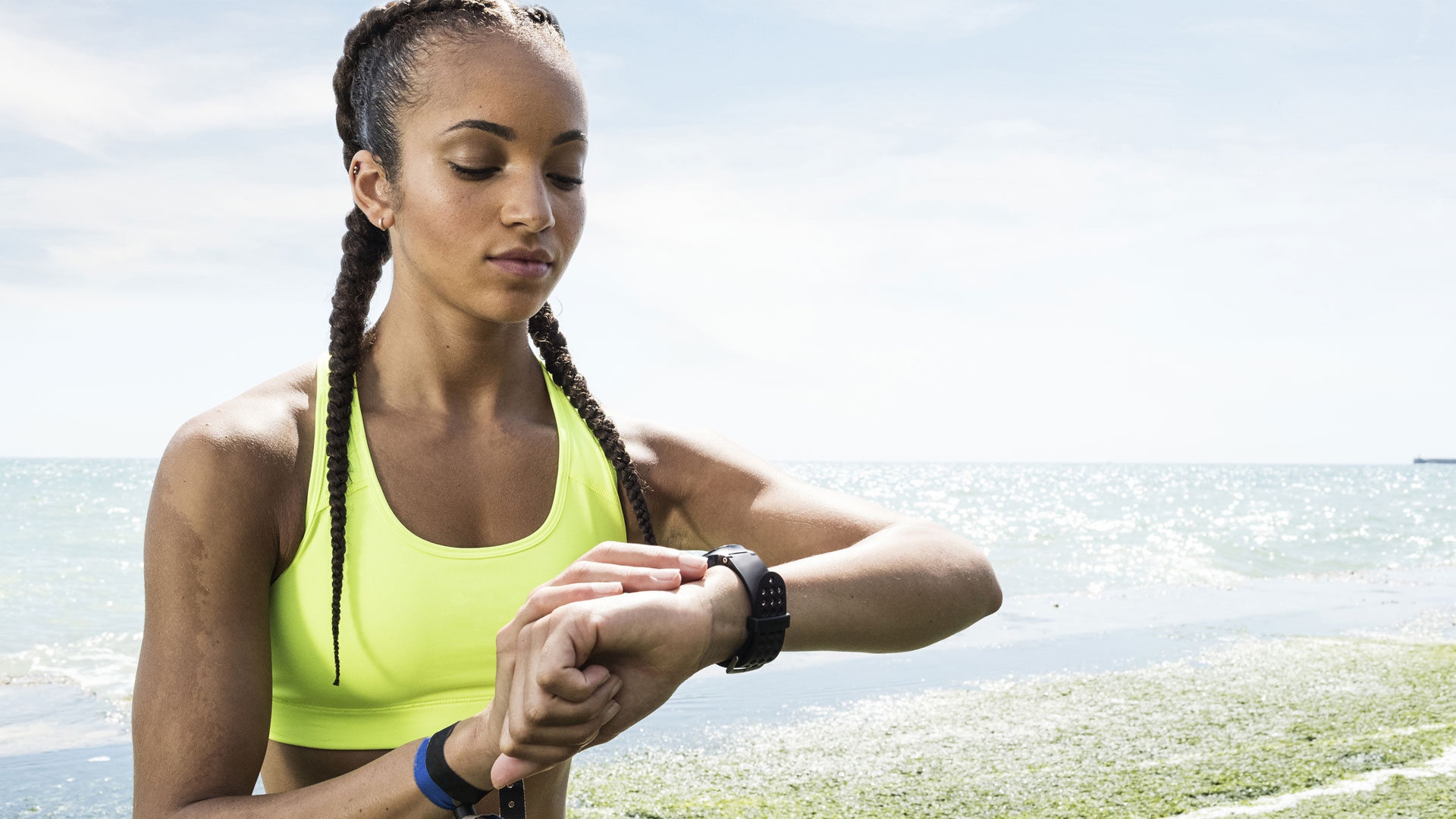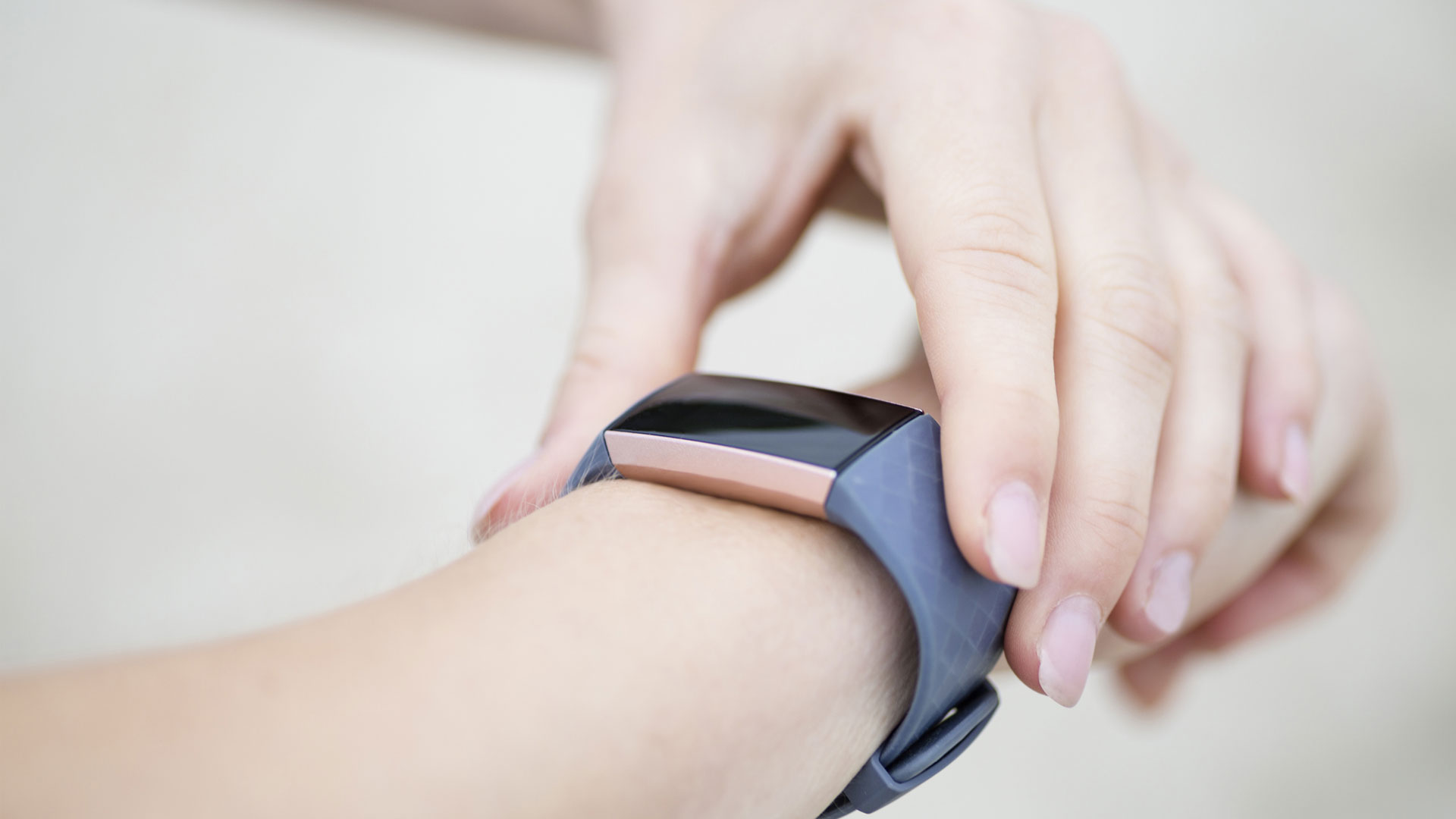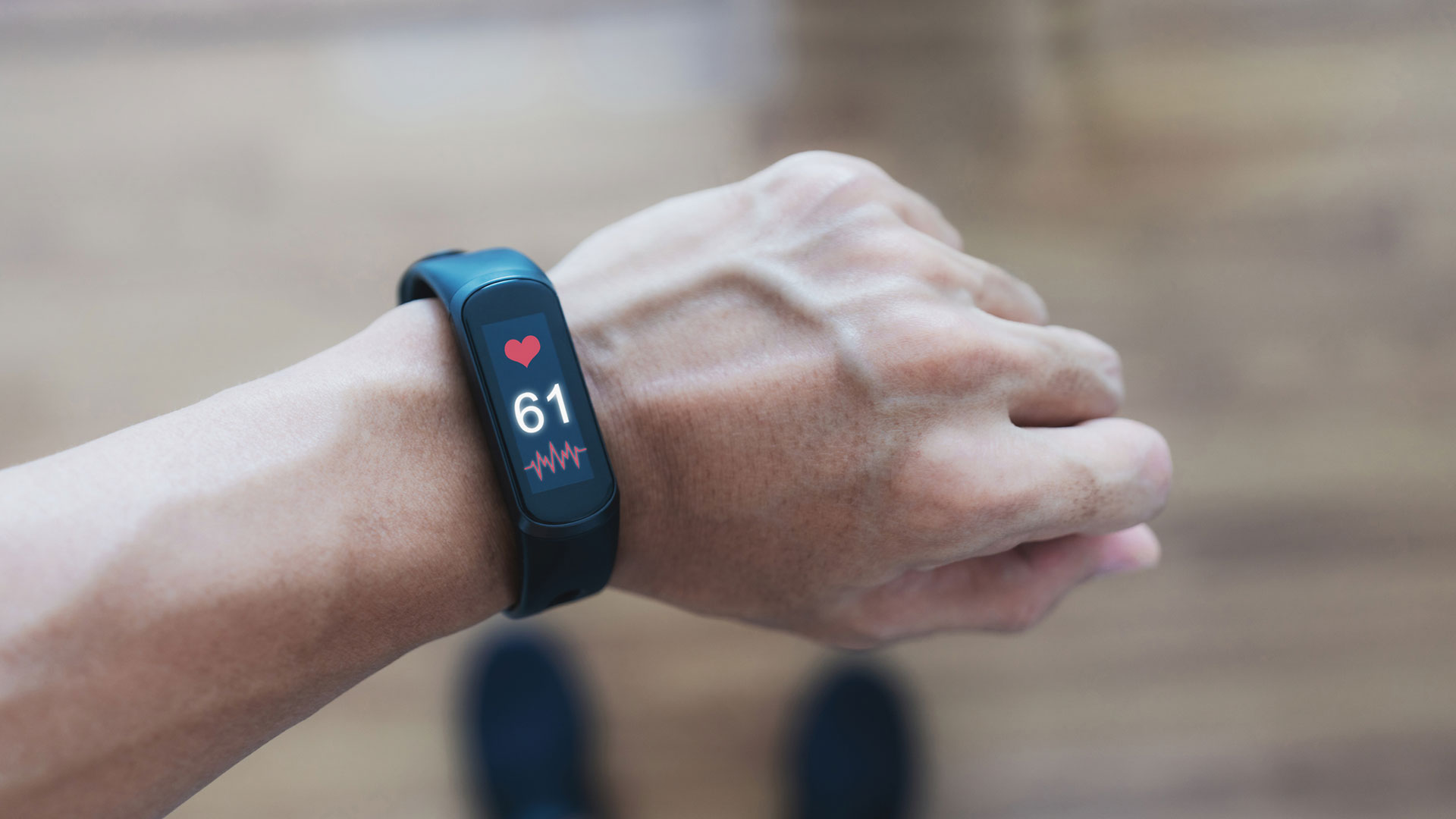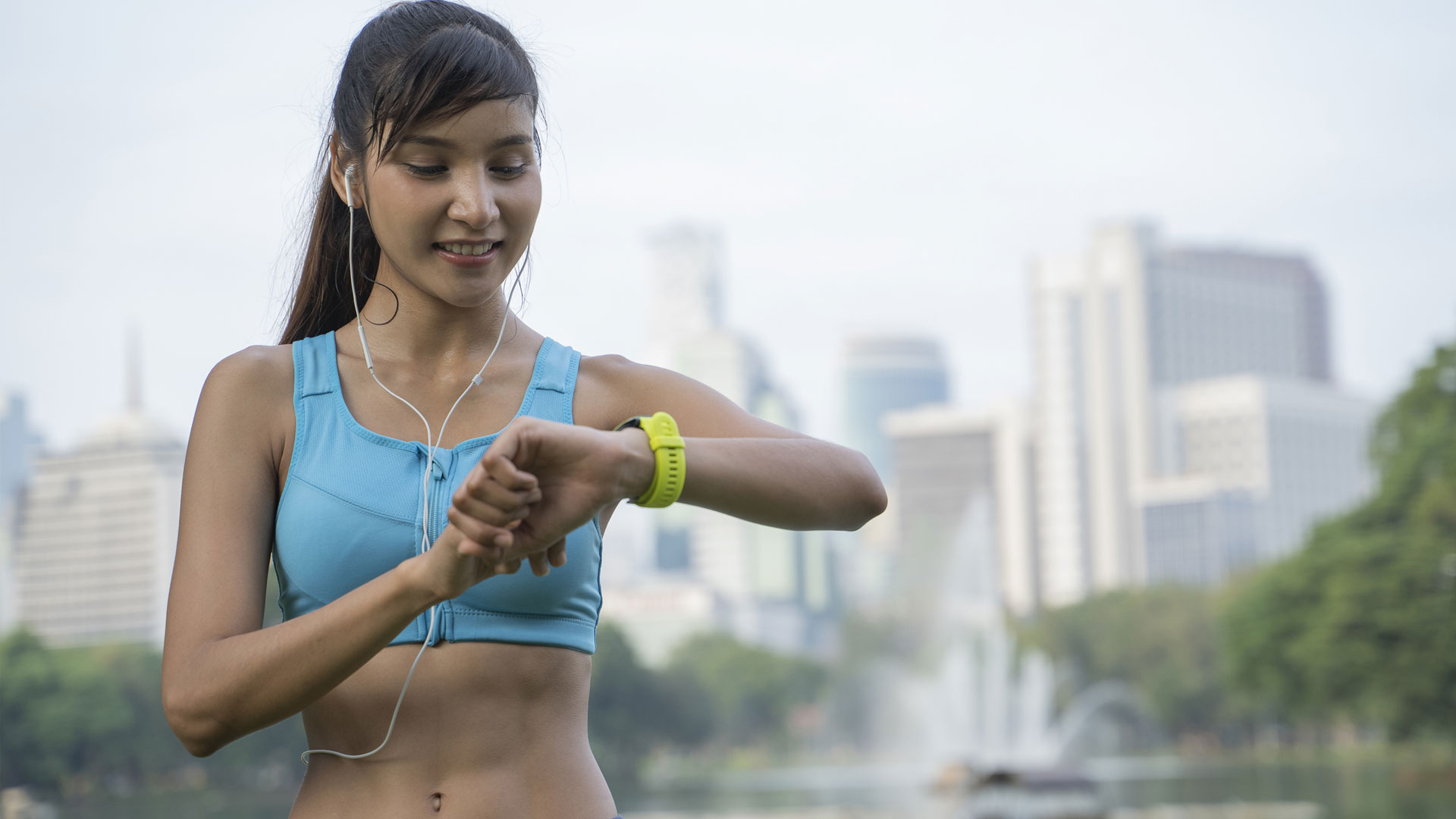How accurate are fitness trackers?
How accurate are fitness trackers? We discover how they measure up when monitoring your heart rate, steps walked and calories burned.

If you’re looking to get more active, then you’re on the right track. The World Health Organisation says adults should do at least 150 minutes a week of moderate physical activity, while children and adolescents should do 60 minutes per day.
Many of us are not getting enough exercise or sleep and turn to fitness trackers to help monitor our progress. (You can find out how fitness trackers monitor your sleep with our handy feature on the subject.) But just how accurate are fitness trackers? Thankfully, there’s a wealth of research out there to help you find out, and we’ve looked at the most recent.
We’ve split trackers’ basic functions; monitoring energy expenditure (calories burned), step-count and heart rate, and discovered how good they are at keeping count of each. Read on to find out how they fare and – if you're sold on getting one – check out our guide to the best fitness trackers.
How accurate are fitness trackers? An overview
The global market for wearable tech has been expanding rapidly, and now covers devices as varied as ‘bite counters’ for monitoring what you eat, GPS systems to locate family members on the move, and virtual fitness aids that simulate outdoor exercise in the comfort of your own home. Fitness trackers are a huge part of this trend, and accounted for a $36 billion contribution to the world economy in 2020, according to Fortune Business Insights. The most sophisticated ones go beyond the basics of calories burnt, steps walked and heart rate trends, to monitor sleep duration and quality, and even how we breathe.
Scientists have done numerous studies on them, and the overall picture is that fitness tracker accuracy is variable, depending on the technology used and what the tracker is trying to measure. Read on for the breakdown per metric...

How accurate are fitness trackers when it comes to calories?
Any activity you do should increase the number of calories you burn (your total energy expenditure, or TEE), although some researchers now question this widely-held theory – see why in this 2015 report in the American Journal of Human Biology. But, assuming that TEE is still a valid measurement, any fitness tracker needs to accurately assess your activity level to be able to calculate it.
A 2020 review of the latest research on trackers in the British Journal of Sports Medicine found that wrist- or arm-worn trackers measuring energy expenditure varied in accuracy depending on the task being performed. When the movement of the body was the only parameter being measured they were less accurate than when the tracker also included a heart rate monitor or heat sensor.
Trackers evaluated for a 2019 report in the International Journal of Environmental Research and Public Health were found to be out by more than 10% when measuring TEE. When measuring aerobic workouts, TEE tended to be overestimated when working at a slower pace, and underestimated when working at a higher pace. During anaerobic workouts trackers generally underestimated the amount of energy used.
Another study of tracker accuracy published in the International Journal of Environmental Research in 2018 stated: "Mainstream devices are able to reliably measure heart rate, number of steps, distance, and sleep duration, which can be used as effective health evaluation indicators, but the measurement accuracy of energy consumption is still inadequate. Fitness trackers of different brands vary with regard to measurement of indicators and are all affected by the activity state, which indicates that manufacturers of fitness trackers need to improve their algorithms for different activity states." In short, what you’re doing will affect how accurate your tracker is when estimating TEE, even if you own one of the very best Fitbits.
How accurate are fitness trackers when it comes to step counting?

A 2020 study reported in the International Journal of Environmental Research and Public Health looked at 11 different trackers - some ‘wearables’ and some working through mobile phone apps. Accuracy varied between the trackers when it came to step counting, but they tended to be better at correctly counting steps during brisk walking, rather than during day-to-day activities and intermittent walking when arm movements were more frequently miscounted as steps. The tendency of trackers to miscount steps at slower speeds was also noted in a 2020 study in the PeerJ journal, which compared a wrist-worn consumer fitness tracker with a ‘research grade’ tracker worn on the ankle and noted: "Both... are valid in detecting steps at selected walking speeds in healthy adults under controlled conditions. However, both activity trackers miscount steps at slow walking speeds, and the consumer graded activity tracker also miscounts steps at fast walking speeds."
A 2019 study published in PLoS One identified the same deterioration in accuracy at low or intermittent walking speeds. As fitness trackers are now being used to monitor the activity level of heart patients, who often need breaks when walking, researchers are calling for improvements in fitness tracker accuracy when measuring this kind of movement.
How accurate are fitness trackers when it comes to heart rate?

Earlier generation fitness trackers came with a chest band to measure heart rate by tracking the electrical signals in your body. However, these devices didn’t work on people with metal implants, as these interfere with the signals, and they were also more suited to wearing during physical activity rather than throughout the day. Modern fitness trackers are now usually worn on the wrist and measure heart rate using something called photoplethysmography (PPG). This optical technology measures how light entering the body scatters as your body flows around your body - put in a very simple way, the sensors can ‘see’ your heart rate.
The back of the tracker contains LEDs (light-emitting diodes) that send light waves into your skin. More tech within the device, known as a photodetector, captures the light that bounces off the wearer’s wrist, which is then turned into information that the device’s inbuilt algorithms can analyze to determine your heart rate.
But how accurate are fitness trackers at measuring your heart rate, and helping you get into cardio heart rate zones?
People using fitness trackers to monitor their average heart rate may be reassured to learn that a Digital Health study in 2018 found they are good at estimating overall heart rate. However, the same report found there was a significant variation in accuracy between different devices.
A 2020 study in JMIR mHealth and uHealth found that optical heart rate monitors "generally produce accurate heart rate readings irrespective of the age of the user". Still, it warned against total reliance on the results, adding "these devices have a tendency to produce erroneous, extreme readings, which might misinterpret the real-time exercise intensity. Future studies should therefore emphasize the occurrence rate of such errors, as this will likely benefit the development of improved models of heart rate sensors." There is still more research needed to work out what causes these extreme results.

How important is accuracy with fitness trackers?
Whether a fitness tracker is accurate or not therefore depends on many factors, but there is one benefit that the experts seem to agree on. A 2018 review of existing research in the JMIR mHealth and uHealth journal found that people who used fitness trackers tended to become more active, increasing their step count, moderate and vigorous exercise levels and their energy expenditure. They also found that trackers helped users maintain good habits in the longer term, and could be helpful to medical professionals monitoring the health of their patients.
- Related: How to get fit
Sign up for the Live Science daily newsletter now
Get the world’s most fascinating discoveries delivered straight to your inbox.
Rosee is a writer at Live Science. She reports on health, fitness, nutrition and well-being, with special interests in outdoor living, cycling, swimming and freediving. A journalist for more than 20 years, her work has appeared in Countryfile magazine, Mountain Biking UK, Live Science, Coach, Tom’s Guide and on BikeRadar.com, among others. Rosee is a marathon swimmer and freediver, who has worked on a project to raise awareness of marine ecology in Bermuda’s schools. She is an open water veteran of many years and is currently training to swim the English Channel. She holds a number of qualifications in swim coaching and freediving and particularly enjoys working one to one with adults to help them overcome their fear of the water.











